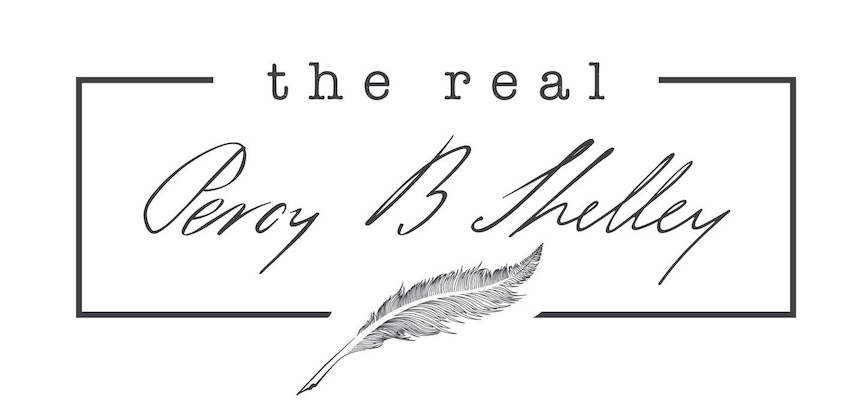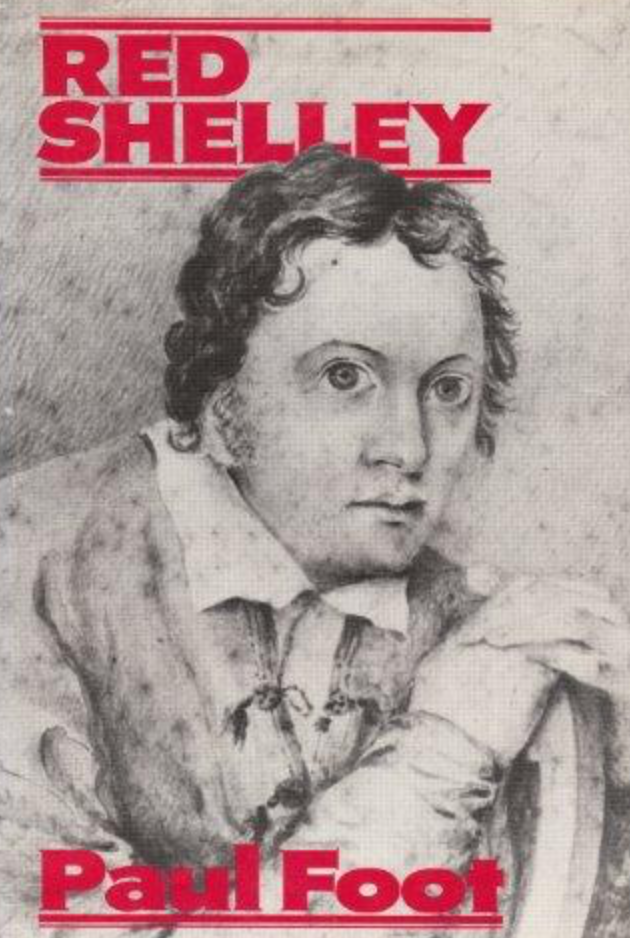What Are You Reading?: Graham Henderson
We are delighted to continue our ‘What are you reading?’ series by presenting an interview with Graham Henderson. Graham is the President and CEO of Music Canada, and the creator of 'The Real Percy Bysshe Shelley', a website devoted to celebrating Shelley's life and works, especially his radical writings and ideas; as the mission statement suggests, Graham's work promotes the fact that "Shelley has the power to enthrall, thrill and inspire. His poetry changed the world and can do so again". Graham is on the Board of the Keats-Shelley Association of America. You can find him on Twitter (Shelley and personal) and we recommend you visit 'The Real Percy Bysshe Shelley' Facebook page, too.

What new studies of Romantic literature are you reading right now?
 Obviously, for me as a PB Shelley scholar, the most important book I am in the midst of is John Worthen’s new biography of PBS. (Worthen will also feature in this series soon! -ed.)I could try to do this book justice, but Nora Crook’s comment on the book perhaps best sums its importance:
Obviously, for me as a PB Shelley scholar, the most important book I am in the midst of is John Worthen’s new biography of PBS. (Worthen will also feature in this series soon! -ed.)I could try to do this book justice, but Nora Crook’s comment on the book perhaps best sums its importance:
John Worthen's literary biography is beautifully written, thoughtful, compact, and well-researched. Firmly grounded in the facts of Shelley's mundane existence (it goes more deeply into the intricacies of his finances than any biography I have read) it never forgets that the reason for our interest in these is that he was a great poet and prose writer. Here will be found stimulating re-evaluations, fresh insights, and provocation. But even when readers disagree with the conclusions he draws from the evidence, they will rise from this book braced, moved, and with a renewed sense of the exceptional nature of Shelley's career and of his extraordinary genius.
Read it. Worthen is a serious biographer and his work is a welcome antidote to some of the recent poorly researched, ad hominem attacks that have been levelled against Shelley’s character.
I am also in the midst of a project to try to come to grips, first hand, with the writers who influenced PBS. I just finished a thoroughly engaging, enthralling biography of Diderot. Written in an approachable and lively prose style by Andrew S. Curran, Diderot and the Art of Thinking Freely was a revelation. We know Shelley was reading Diderot as early as 1812, but I don’t think we have a clue about the extent to which he influenced Shelley’s intellectual development. I quickly canvassed all of the major biographies but found nothing more than passing mentions of the fact Diderot was in PBS’s book lists. There is work to be done! If Shelley didn’t read Diderot, then he sure as hell channelled him.
In keeping with this trend, I am also labouring through James Harris’ David Hume: An Intellectual Biography. This is not the charming, sparkling read that Diderot was. But then I have a feeling Hume wasn’t as charming and fun-loving as Diderot either. In any event, if you stick with Harris you can easily see why Shelley was attracted to him.

Does this writing inform your current research and/or teaching?
I am not an academic or a teacher. However, I do run a very popular website that promotes an awareness of Shelley’s poetry, politics and philosophy. My objectives are not only to connect with a broader community of folks around the world who love and/or admire him but also to capture the interest of lay readers who may not be aware of how bloody fantastic and relevant he is. I am an old-school proselytizer – a sort of exhorter or circuit-rider always on the lookout for new adherents. You can visit my site here. There is an associated Facebook page with an audience of thousands as well as a Twitter feed.
 This sort of reading very much influences what I write about for my audience. I think one of the great things about Shelley is that he wasn’t an “art-for-art’s sake” kind of guy. He was a radical political animal through and through. I want to connect modern readers with his enthusiasm for changing the world – and doing than involves connecting them with the whole beautiful apparatus upon which his philosophy rests. The late, great Paul Foot said it best:
This sort of reading very much influences what I write about for my audience. I think one of the great things about Shelley is that he wasn’t an “art-for-art’s sake” kind of guy. He was a radical political animal through and through. I want to connect modern readers with his enthusiasm for changing the world – and doing than involves connecting them with the whole beautiful apparatus upon which his philosophy rests. The late, great Paul Foot said it best:
Of all the things about Shelley that really inspired people in the 160 years since his death, the thing that matters above all is his enthusiasm for the idea that the world can be changed. It shapes all his poetry. And when you come to read “Ode to the West Wind” where he writes about the “pestilence-stricken multitudes” and the leaves bein
g blown by the wind, then you understand that he sees the leaves as multitudes of people stricken by a pestilence. You begin to see his ideas, his enthusiasm and his love of life. He believed in life and he really felt that life is what mattered. That life could and should be better than it is. Could be better and should be better. Could and should be changed. That was the thing he believed in most of all.
What’s the critical book that figured most significantly in your PhD thesis/first monograph/most recent monograph?
As I said, I am not an academic, but I do write prolifically on Shelley. The book and the writer that has most influenced my recent writing is Paul Foot’s Red Shelley. Paul’s book was not well received within the confines of academia because, I think, he was a journalist and not a member of the Academy. I feel he was somewhat shunned for his lack or credentials. His character was brilliantly summed up in his Guardian obituary: Paul was, it asserted, “the finest campaigning journalist of his generation. He had everything: a ferociously forensic brain, deep compassion, a prodigious capacity for work, great courage, a healthy and permanent distrust of politicians of any party, a sharp wit, a devastating pen and principles as deep, wide and awe-inspiring as the Grand Canyon.” He was also fanatical about PBS. It is fair to say that unlike many of those who purport to admire Shelley, Paul also lived a very Shelleyan life. T
his is something I aspire to. You can listen here to a podcast in which I discuss the way I have incorporated PB’s belief system into the way I live my life.
In 1981 Paul delivered an epic 90-minute speech on the subject of his hero. Appearing at the London Marxism Conference, Foot’s speech was delivered extemporaneously from notes and has become legendary. Amazingly, it had never been published. We are fortunate that it was recorded and that an online copy of the speech exists. Using this recording, I managed to transcribe what was said. It took almost 200 hours of careful listening to the atrocious online recording of the speech as well as seemingly endless research into the often arcane references Paul made to left-wing and Marxist organizations.
Paul (together with the Marxist Shelleyan Kenneth Neil Cameron) helped me to understand that Shelley must be looked at through a left-wing, revolutionary lens. This influence everything I think about PBS and his importance to our era. Marx said it best:
The real difference between Byron and Shelley is this: those who understand and love them rejoice that Byron died at 36. Because if he had lived he would have become a reactionary bourgeois; they grieve that Shelley died at 29 because he was essentially a revolutionist and he would always have been one of the advanced guard of socialism.
What books are in your ‘to read next’ pile right now? (poetry, fiction, theory, anything!)
I have three novels by John Williams to read: Stoner, Augustus and Butchers’ Crossing. Also Poetry and the Police: Communication Networks in 18th Century Paris by Robert Darnton. Then Susan Jacoby’s Strange Gods: A Secular History and Memorial by Alice Oswald [read the Guardian review here].
What books are on your night table or desk?
Because my day job involves running a Canadian trade association that represents the recording industry, you are going to see a LOT of books on my desk about music and digital culture. For example, Ruling the Waves, Debra Spar; Free Ride, Robert Levine; The People’s Platform, Astra Taylor; Sound System: The Political Power of Music, Dave Randall; Move Fast and Break Things, Jonathan Taplin. But also there you will find most of Shelley’s poetry and prose as well as the standard biographies and references. I generally don’t keep books on my night table because I have a terrible tendency to knock over glasses of water in the middle of the night which has created book catastrophies. But the one that is there right now (half-read) is Malcom Gaskill’s Between Two Worlds: How the English Became Americans.
Which book do you most frequently recommend to your students? Which students? Why?
To my audience I routinely recommend Paul Foot, Red Shelley and Kenneth Neil Cameron, The Young Shelley: Genesis of a Radical.
Why? Because we need a revolution people!! There are barricades to erect.
Have there been any mainstream articles or publications on the Romantics you’d like to draw our attention to?
There was a great article in the LRB recently by Seamus Perry: “Wielded by a Wizard”. This was a review of Selected Poems and Prose by Percy Bysshe Shelley, edited by Jack Donovan and Cian Duffy. It’s a joyous, terrific read which offers readers, in a very few words, a real sense of the man that Shelley was. I particularly enjoyed the focus on his (supposedly non-existent) sense of humour.

